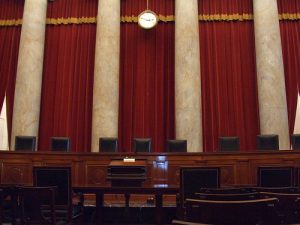 A decision handed down by a federal court in New York last week further evidences the government’s commitment to fighting health care fraud. The court finds the clock begins to run on the duty to return Medicaid and Medicare overpayments (also known as reverse false claims) when the provider is put on notice that an overpayment likely occurred, rejecting the defendants’ position that the period only begins when an overpayment is conclusively proven. Our health care fraud whistleblowers’ law firm applauds the decision fight back against health care fraud.
A decision handed down by a federal court in New York last week further evidences the government’s commitment to fighting health care fraud. The court finds the clock begins to run on the duty to return Medicaid and Medicare overpayments (also known as reverse false claims) when the provider is put on notice that an overpayment likely occurred, rejecting the defendants’ position that the period only begins when an overpayment is conclusively proven. Our health care fraud whistleblowers’ law firm applauds the decision fight back against health care fraud.
Understanding Motions to Dismiss
Before turning to the substance of the ruling, it is worth taking a brief look at legal procedure. When a complaint is filed, the defendant typically responds with an answer, a paragraph-by-paragraph response. If the defense believes the claim is entirely without legal merit, they may file a motion to dismiss instead. One basis is Federal Rule of Civil Procedure 12(b)(6) whereby the defendant asserts the complaint should be dismissed for “failure to state a claim upon which relief can be granted.” In essence, the defendant asserts that even if everything the plaintiff alleges is true, there is no actionable violation of law.
 Healthcare Fraud Lawyer Blog
Healthcare Fraud Lawyer Blog






 for all program beneficiaries. This coverage includes an annual depression screening and necessary outpatient mental health treatment such psychotherapy and medication management. If a beneficiary requires
for all program beneficiaries. This coverage includes an annual depression screening and necessary outpatient mental health treatment such psychotherapy and medication management. If a beneficiary requires 
